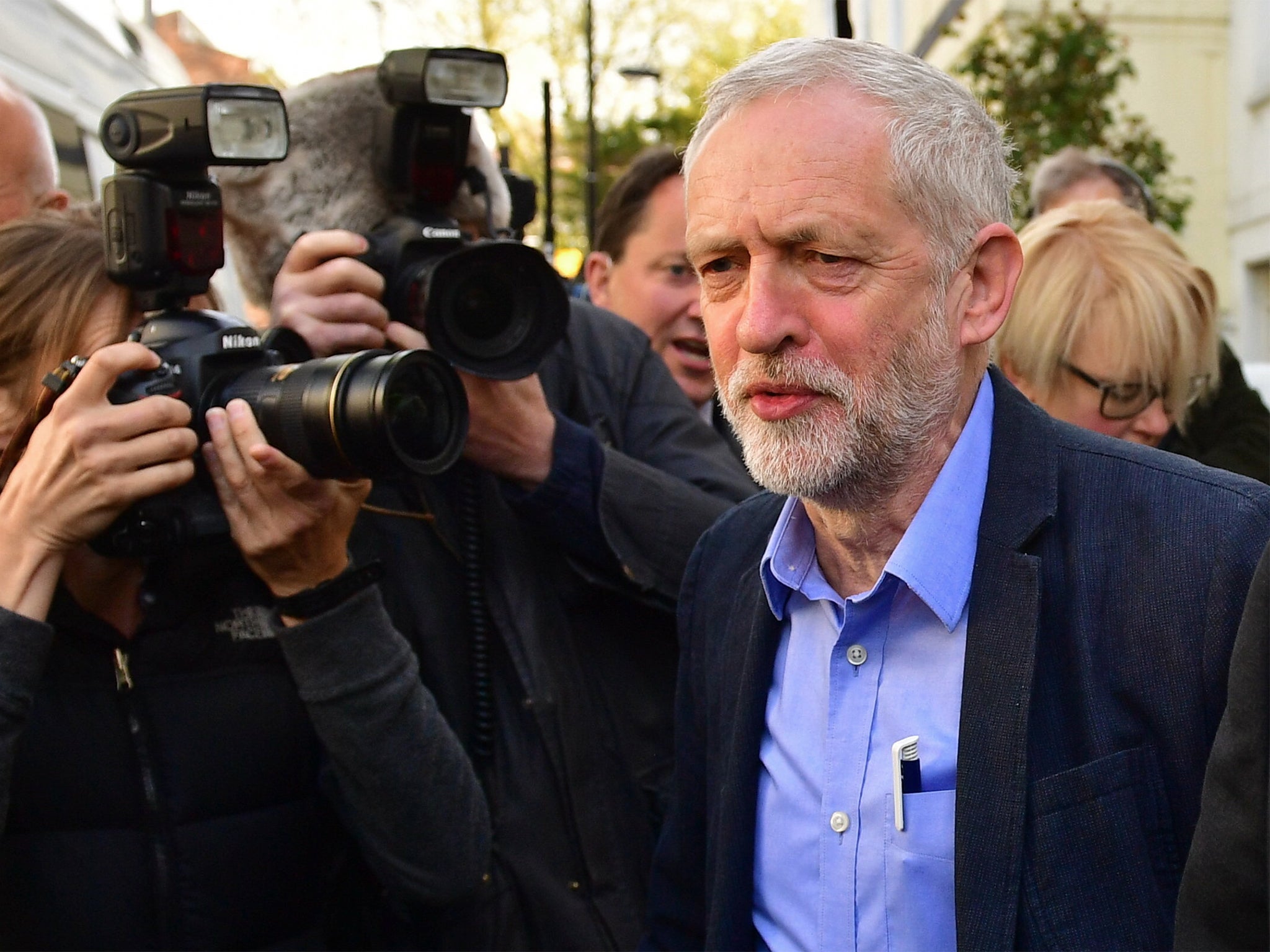BBC may be biased against Jeremy Corbyn, says former BBC Trust chairman
'There have been some quite extraordinary attacks on the elected leader of the Labour party', says Sir Michael Lyons

Your support helps us to tell the story
From reproductive rights to climate change to Big Tech, The Independent is on the ground when the story is developing. Whether it's investigating the financials of Elon Musk's pro-Trump PAC or producing our latest documentary, 'The A Word', which shines a light on the American women fighting for reproductive rights, we know how important it is to parse out the facts from the messaging.
At such a critical moment in US history, we need reporters on the ground. Your donation allows us to keep sending journalists to speak to both sides of the story.
The Independent is trusted by Americans across the entire political spectrum. And unlike many other quality news outlets, we choose not to lock Americans out of our reporting and analysis with paywalls. We believe quality journalism should be available to everyone, paid for by those who can afford it.
Your support makes all the difference.The former chair of the BBC Trust has accused the broadcaster’s journalists of “quite extraordinary attacks” on Jeremy Corbyn, and questioned whether BBC bosses had abandoned impartiality in their coverage of the Labour leader.
In comments that appear to reinforce recent criticisms of the BBC from supporters of Mr Corbyn, Sir Michael Lyons said he could “understand why people are worried” about impartiality at the public broadcaster.
He added that the Charter Renewal process had “certainly led to very real suspicions that ministers want to get much closer to the BBC”.
Speaking to BBC Radio 4’s World at One programme he said: “I don’t think I’m alone in feeling that the BBC has sought to hedge its bets of late. There have been some quite extraordinary attacks on the elected leader of the Labour Party. I mean quite extraordinary. I can understand why people are worried about whether some of the most senior editorial voices at the BBC have lost their impartiality in this.”
“All I’m voicing is the anxieties that have been expressed publicly by others,” he added.
Criticisms of the BBC among some of Mr Corbyn’s supporters have escalated since last week’s local elections. A petition was launched calling for political editor Laura Kuenssberg to be sacked, but later taken down by 38 Degrees after it became a focal point for what the campaign group’s executive director called “sexist and hateful abuse”.
Tony Hall, the BBC’s director general, also speaking to the World at One, called Sir Michael’s claim “extraordinary”.
“That’s not the journalism I know or the journalists in this organisation I know,” he said. “I think the journalism of the BBC is impartial. We test all sides. The journalists in the BBC do a really hard job in the midst of controversy bringing a light and calm judgements to what’s going on.”
Earlier, the Culture Secretary John Whittingdale announced a series of recommendations as part of a "major overhaul" of how the BBC operates, including the total abolition of the BBC Trust.
Here are the key points from the announcement.
A new complaints system - with Ofcom now taking on responsibility for regulating the BBC
- BBC iPlayer viewers, even those who only watch catch-up services, will be required to pay the licence fee
- A freeze on the fee will end, and the current cost of £145.50 a year will rise in line with inflation from 2017
- But there will be more flexible payment plans to help lower-income families pay over time
- And the BBC is going to be required to make its content "portable", so UK fee payers can access iPlayer while on holiday in other EU member states
- The BBC must focus on "innovative and high quality" programming - not just on ratings
- More programmes catering to diverse communities, regions and nations of the UK, as part of a government "requirement to serve all audiences"
- More educational content across BBC platforms "to help support learning for children and teenagers across the UK"
- Fewer "in-house" BBC shows, except for news programmes. Because the Tories believe in "the benefits of competition", all funding for BBC TV content will be opened up to tender from private production firms who think they could do a better job than the BBC's in-house teams
John Whittingdale, the Culture Secretary, told Parliament: "The BBC is and must always remain at the very heart of British life. We want the BBC to thrive, to make fantastic programmes for audiences and to act as an engine for growth and creativity."
Join our commenting forum
Join thought-provoking conversations, follow other Independent readers and see their replies
Comments